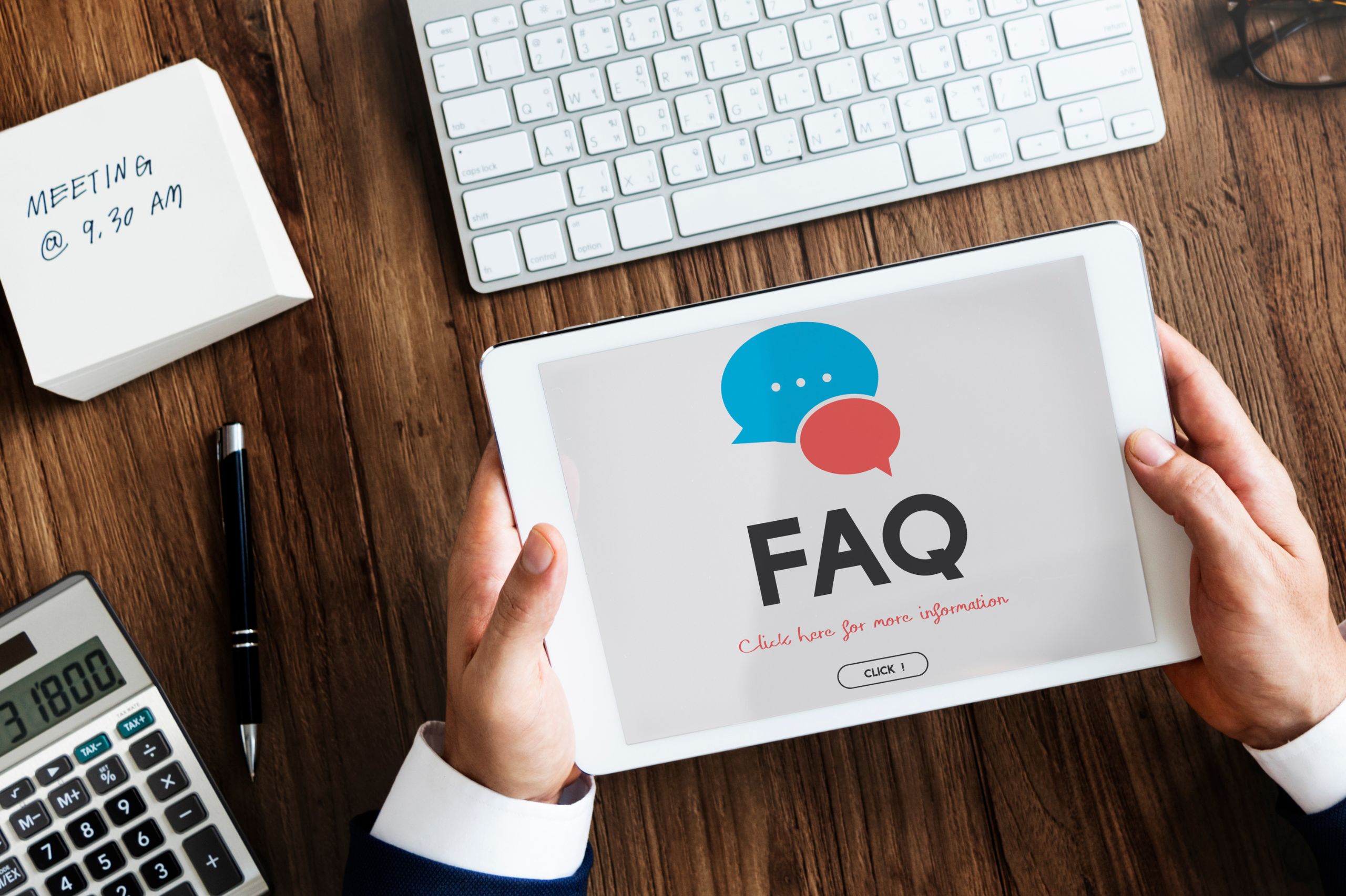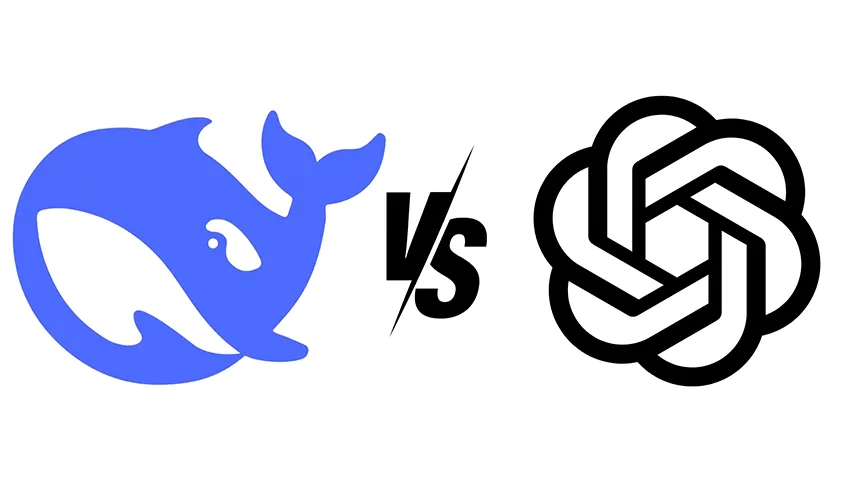-
Find Services
-
Generative AI
-
Blockchain Technology
-
Mobile App Development
-
Software Development
-
Web Development
-
E-Commerce Development
-
App Designing (UI/UX)
-
Web Designing (UI/UX)
-
IoT Development
- Industry
- Manufacturing
- Health Care
- Logistics
- Automotive
- Testing Services
- DevOps
- Game Development
- Robotic Process Automation
- AR & VR Development
- Browse All Services
-
Generative AI
-
Find Agencies
- Submit Reviews
- Research & Surveys

Businesses need to keep up with the demands of their customers, and one of the most effective ways to do that is by automating frequently asked questions (FAQs) on their websites. AI tools, especially those powered by ChatGPT, can be full game-changers in this area. They not only line up customer service but also boost lead generation, sales, and the user experience. In this blog, we will explore the best use of AI tools to automate FAQs on websites, with a focus on customizing ChatGPT for website FAQs and how a ChatGPT FAQ chatbot can drive lead generation.
Understand Why Automate FAQs?
Before moving into specifics, let’s understand why automating FAQs is so beneficial. From ancient times, solving customer queries required significant human resources, which can be time-consuming and expensive. Automated FAQ systems solve this problem by providing instant responses to common customer queries, freeing up your team to focus on more complex tasks. Moreover, they ensure that customers get the information they need in seconds, improving their overall experience with your brand.
What is the Role of AI in Automating FAQs?
AI has changed how businesses approach customer service. With AI tools like ChatGPT, you can create intelligent systems that understand and respond to customer queries with the exact answers. These tools are particularly effective because they can be trained to understand the context and provide personalized responses, making them more useful than traditional rule-based chatbots.
Customizing ChatGPT for Website FAQs
One of the most powerful ways to use AI tools for automating FAQs is by customizing ChatGPT. Unlike generic chatbots, a customized ChatGPT can be customized specifically for your business, making it much more effective in addressing your customers’ needs.
Step 1: Understand Your FAQs
The first step in customizing ChatGPT for your website’s FAQs is to grasp the frequency of what questions your customers are asking. Reasearch your current FAQ section, customer service emails, and any other sources of customer queries to identify the most common questions. Once you have a list, categorize them into themes or topics. This will help in telling ChatGPT to provide accurate and relevant responses.
Step 2: Train ChatGPT with Specific Data
After collecting all the necessary data, the next step is to train ChatGPT. This involves feeding the AI with your categorized FAQ data so it can learn how to respond to different types of queries.
For example, if you’re running an e-commerce website, you might want ChatGPT to handle questions about shipping, returns, product details, and payment methods. Training ChatGPT involves more than just providing it with answers; it’s about helping it understand the basics of your business. For instance, if your brand has a specific tone or style of communication, this should be reflected in the way ChatGPT responds. The goal is to make the AI sound as human and on-brand as possible.
Step 3: Test and Refine
Once ChatGPT has been trained, it’s essential to take the test properly. Engage with the AI in various scenarios from different perspectives to see how well it handles different types of queries. This testing process will clear up any gaps in the AI’s understanding and areas where responses could be improved.
Based on the results, recheck the AI’s training data. This might involve adding more examples of specific questions, tweaking responses to better align with your brand voice, or adjusting the AI’s logic to handle more complex queries.
Step 4: Integrate ChatGPT into Your Website
After refining ChatGPT, it’s time to integrate it into your website. This can be done through various platforms and plugins that support AI chatbot integration. Make sure that the AI is easily accessible, such as through a chat widget on your homepage or a dedicated FAQ page.
When integrating ChatGPT, consider its placement and visibility. Customers should find it intuitive to use, and it should be prominently featured on pages where users are likely to have questions, such as product pages or checkout sections.
Step 5: Monitor Performance and Update Regularly
The work doesn’t stop once ChatGPT is live on your site. Monitoring daily is crucial to ensure that the AI continues to meet customer queries. Check the user interactions with the chatbot to identify trends, common issues, and areas for improvement.
As your business updates, so will your FAQs. Regularly update ChatGPT with new information, and retrain it as needed to keep up with changes in products, services, or customer preferences. This continuous process ensures that AI remains a valuable tool for your website.
ChatGPT FAQ Chatbot for Lead Generation
Beyond just answering questions, a ChatGPT FAQ chatbot can play a crucial role in lead generation. By engaging users in meaningful conversations, the AI can identify potential leads and guide them through the sales funnel.
Identify potential leads.
One of the key advantages of using a ChatGPT FAQ chatbot is its ability to identify potential leads. By analyzing user behaviour and the types of questions they ask, the AI can gauge the user’s intent. For example, if a user is asking
detailed questions about pricing, availability, or product features, the AI can recognize this as a strong buying signal.
Guide users through the sales funnel.
Once a potential lead has been identified, the ChatGPT FAQ chatbot can guide them through the sales funnel. This might involve providing more detailed information, offering product recommendations, or even directing the user to a specific landing page. The AI can also handle follow-up questions and provide personalized responses that keep the user engaged.
Collect Contact Information
Another powerful feature of a ChatGPT FAQ chatbot is its capacity to collect contact information from users. For example, if a user is interested in a specific product but not ready to make a purchase, the AI can offer to send them more information via email. This not only helps in capturing leads but also allows you to follow up and keep in touch with them through targeted email marketing campaigns.
Boost conversion Rates
By providing personalized responses in seconds, a ChatGPT FAQ chatbot can boost conversion rates. Users are more likely to make a purchase when their questions are answered exactly on time when requested and accurately. Additionally, by guiding potential leads through the sales funnel, AI helps to reduce drop-off rates and increase overall sales.
Conclusion
Automating FAQs on your website using AI tools like ChatGPT is a smart, classy, and different move from all your competitors that can enhance customer service, smooth operations, and drive lead generation. By customizing ChatGPT to handle your specific FAQ needs, you can provide instant, accurate responses that keep your customers satisfied and engaged. Moreover, by taking benefit of the AI’s ability to identify and nurture leads, you can turn casual website visitors into loyal customers. Regular updates and refinements will ensure that your ChatGPT FAQ chatbot continues to deliver value as your business grows.
Incorporating a ChatGPT FAQ chatbot into your website is more than just a convenience—it’s a strategic tool that can lead to increased customer satisfaction and improved business outcomes.
Latest Posts
Categories
Tags
Submit Your Inquiry
Related Posts

The Role of Generative AI in Building Smart Websites
Websites are not only static online brochures today in this digital age. Instead, they are interactive platforms that react to users and respond according to their needs for business growth. Generative AI is transforming website development with its ability to generate truly "smart" websites with personalized experiences, enhanced user engagement, and better business outcomes. Key AI Integration Services for Smart Websites: 1. Generative AI-Powered Content Generation: Personalized Content: Unique, customized content for every user based on their browsing history, demographics, and preferences. Personalized product recommendations, customized website copy, and targeted marketing messages can be included. Automated Content Creation: Using AI to write blog posts, compose product descriptions, translate content into multiple languages, and create social media updates. Human resources can then be utilized for more strategic tasks. Better Content Quality: AI algorithms can scan the existing content, identify improvement areas, and provide recommendations to make the content more readable, SEO-friendly, and user-friendly. 2. Generative AI-Driven Design and Development: Adaptive Design: Design websites that automatically adapt to different screen sizes and devices, so that the viewing experience is optimal on desktops, laptops, tablets, and smartphones. AI-Powered Design Tools: Use AI-powered design tools to generate website layouts, select color palettes, and choose fonts, which will streamline the design process and accelerate development timelines. Accessibility Improvements: AI can help identify and solve accessibility problems, making sure that websites are accessible to people with disabilities, such as visual or motor impairments. AI-Enhanced User Experience: Chatbots and Virtual Assistants: Implement AI-powered chatbots and virtual assistants to provide instant customer support, answer frequently asked questions, and guide users through the website. Personalized Search: Enhance website search functionality by using AI to understand user intent and provide more relevant search results, improving user satisfaction and reducing bounce rates. Predictive Analytics: Using user behavior data, predict potential future actions including purchases or requests for services; this way businesses can be ready to address these needs and give a more customized experience. 3. Generative AI SEO and Marketing: Keyword Research and Optimization: Identify relevant keywords by using AI algorithms and optimize content on the website for search engines to improve ranks and drive more organic traffic. Automated Marketing Campaigns: Use the power of AI to automate email marketing campaigns, personalize ad targeting, and analyze campaign performance to get maximum return on investment. Competitive Analysis: Analyze insights about competitor websites, develop potential areas of improvement, and create a strategy to outperform competitors. Role of Generative AI Business Consultants: Business consultants for artificial intelligence play a significant part in the website development process ensuring that AI could be integrated for desired business performance. They could provide the services in the below-mentioned value propositions: Strategy Development for Artificial Intelligence. Set clear AI-specific goals and objectives in line with business strategies. Develop an AI deployment roadmap with all timelines, costs, and requirements for resources in place. Scout and evaluate applicable AI technologies as well as any tools. Monitoring Integration with AI technologies, into existing site infrastructure. Integration of AI-driven systems and services with other businesses applications should remain seamless and also secure. Delivery of long term support and maintenance for AI-rich website functionality. AI Performance Tracking and Optimization Monitor KPI performance to track improvements in the deployment of AI onto the website on user engagement metrics. Identify further areas for optimizing AI algorithms through improvement in terms of effectiveness, and then providing feedback on improving its strategies to leverage maximum ROI. Conclusion: Generative AI is revolutionizing the landscape of website development, creating intelligent, user-centric, and data-driven online experiences. Through AI-powered technologies and the guidance of seasoned AI Business Consultants, businesses can unlock the full potential of their websites, drive customer engagement, and achieve sustainable growth in the digital era.

How businesses are utilizing marketing with generative AI
In a time of quick technical development, generative artificial intelligence (AI) has revolutionized the marketing sector. With the help of this potent technology, companies can now produce content, plan campaigns, and customize client experiences in ways that were not possible in the past. The marketing landscape is changing due to the increasing adoption of generative AI by businesses globally, especially in the US. This piece on the blog examines the use of generative AI in marketing by organizations, emphasizing the function of AI Development Companies in USA and the advantages of AI outsourcing for US enterprises. Understanding Generative AI in Marketing The term "generative AI" describes the application of artificial intelligence to produce ideas, products, or information depending on certain input data. Generative AI employs machine learning algorithms to produce fresh, original content, which can be text, graphics, videos, or even whole marketing plans, in contrast to classical AI, which is based on pre-established rules. This technology is especially useful for marketing, since audience engagement and conversion rates are largely dependent on originality and customisation. Applications of Generative AI in Marketing Businesses are leveraging generative AI across various aspects of their marketing efforts. Here are some of the most impactful applications: 1. Content Creation Content creation is one of the most common applications of generative AI in marketing. With little assistance from humans, AI-powered technologies can produce email newsletters, blog posts, social media updates, and even video scripts. This guarantees a consistent brand voice and style across all platforms while also saving time. The AI development firms in USA are at the forefront of developing advanced content creation technologies that support businesses in producing consistent, high-quality content. 2. Personalized Marketing Campaigns Through the analysis of client data and the creation of customized content, generative AI enables firms to launch highly personalized marketing campaigns. AI is capable of creating customized email campaigns and product recommendations, for instance, by examining a customer's browser history, buying patterns, and social media interactions. This degree of customization boosts consumer loyalty and engagement, which eventually results in increased conversion rates. 3. Creative Design and Visual Content Generative AI is transforming not just text-based content but also graphic content production. Based on particular inputs or themes, AI technologies can create logos, pictures, and even whole website designs. Businesses who need to quickly produce visually appealing marketing materials may find this especially helpful. Modern design tools are being created by AI development companies in the USA to enable marketers to try out various visual styles and concepts that are produced by AI. 4. Social Media Management Constant content development, interaction, and analysis are necessary for social media account management. Many of these jobs, including creating social media postings and evaluating engagement data, can be automated by generative AI. Social media management platforms with AI capabilities can plan posts, reply to comments, and even produce customized content for certain audience niches. Marketing teams may now concentrate on strategy and creativity instead of being bogged down by tedious activities because of automation. 5. Dynamic Advertising The field of dynamic advertising is witnessing a surge in the use of generative AI. AI systems are able to produce customized advertising content in real time based on user preferences and behavior. This increases the relevance and efficacy of the same advertisement by allowing it to appear differently to different users. AI can also be used by businesses to test several iterations of an advertisement and optimize for the versions that perform the best. American AI development firms are at the forefront of technology, enabling marketers to target the appropriate audience at the right time with dynamic ads. The Role of AI Development Companies in the USA AI development companies in the USA play a critical role in helping businesses harness the power of generative AI for marketing. These companies offer a range of services, from developing custom AI solutions to integrating AI tools into existing marketing platforms. Their expertise ensures that businesses can effectively implement generative AI strategies that align with their marketing goals. 1. Custom AI Solutions Many businesses require AI solutions tailored to their specific needs. AI development firms in the USA specialize in creating custom AI tools that cater to unique marketing challenges. Whether it's developing a content generation tool that matches a brand's voice or creating a personalized recommendation engine, these firms provide the technical expertise needed to bring generative AI projects to life. 2. AI Integration and Implementation Integrating generative AI into existing marketing systems can be complex. AI development companies in the USA offer integration services that ensure seamless deployment of AI tools across various marketing channels. This includes integrating AI with CRM systems, marketing automation platforms, and analytics tools to create a unified marketing ecosystem. 3. Ongoing Support and Optimization The effectiveness of generative AI in marketing depends on continuous optimization. AI development firms in the USA provide ongoing support to ensure that AI tools are regularly updated and fine-tuned based on performance data. This support is crucial for businesses that want to stay ahead of the competition by leveraging the latest advancements in AI technology. Benefits of AI Offshoring for US Companies While many US businesses work with domestic AI development firms, there is also a growing trend towards AI offshoring. Offshoring AI development to countries with lower labor costs can offer several benefits, particularly for small to medium-sized businesses looking to maximize their marketing budgets. 1. Cost Efficiency One of the primary benefits of AI offshoring for US companies is cost efficiency. Offshore AI development firms often offer services at a fraction of the cost of their US counterparts. This allows businesses to invest in cutting-edge AI technology without exceeding their budgets. Cost savings from offshoring can then be redirected towards other marketing initiatives, such as campaign scaling or customer acquisition. 2. Access to Global Talent Offshoring AI development gives US companies access to a global pool of talent. Many countries, particularly in Asia and Eastern Europe, have a wealth of skilled AI developers who are well-versed in the latest technologies. By partnering with offshore firms, US businesses can tap into this talent pool, gaining access to innovative ideas and approaches that might not be available domestically. 3. Faster Time-to-Market Offshore AI development firms often operate in different time zones, allowing for round-the-clock development. This can significantly speed up the time-to-market for AI-driven marketing solutions. By leveraging the time zone difference, businesses can ensure that their AI projects are being worked on continuously, reducing the time it takes to launch new marketing initiatives. 4. Scalability Offshoring also offers scalability benefits. As a business grows, its marketing needs will likely expand, requiring more sophisticated AI solutions. Offshore AI development firms can scale their services to meet the growing demands of US businesses, providing the flexibility needed to adapt to changing market conditions. Challenges and Considerations in AI Offshoring While AI offshoring offers numerous benefits, it is not without challenges. Businesses must carefully consider factors such as communication barriers, cultural differences, and data security when working with offshore AI development firms. Establishing clear communication channels, setting expectations, and ensuring compliance with data protection regulations are essential steps to mitigate these challenges. Conclusion Generative AI is transforming the marketing landscape, offering businesses unprecedented opportunities to create personalized, engaging content and campaigns. AI development companies in the USA are at the forefront of this revolution, providing the tools and expertise needed to harness the power of generative AI. Additionally, the benefits of AI offshoring for US companies make it an attractive option for businesses looking to maximize their marketing ROI. As generative AI continues to evolve, its impact on marketing will only grow, making it an essential component of any forward-thinking marketing strategy.







